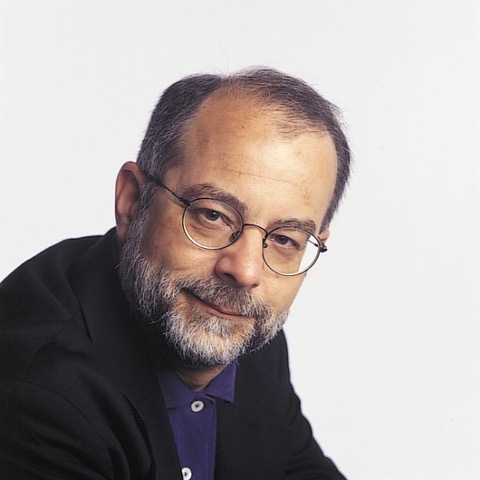Bernd Christmas, the CEO of a Mi’kmaq fishing company in Nova Scotia, has praised Clearwater Seafoods for its outreach efforts following the recent decision by the Canadian government to reallocate a portion of the Arctic surf clam fishery quota to indigenous groups.
Clearwater Seafoods holds 100 percent of the Arctic surf clam quota, but in October, Canada’s Ministry of Fisheries and Oceans (DFO) announced that 25 percent of that quota will be used to create a First Nations-led fishery beginning in 2018.
Three separate First Nations groups have made formal announcements they will bid on the new licenses. One is a collective of the Miawpukek First Nation, Innu Nation, and Qalipu First Nation in Newfoundland Labrador, which proposes working with Cooke Clam Group, a subsidiary of Cooke Aquaculture. A second involves a partnership between the Innu of Quebec, the Mi’gmaq of New Brunswick, the Southern Inuit of Labrador and Ocean Choice International. The third interested party is a group of 13 of Nova Scotia’s Mi’kmaq communities in a partnership with Clearwater.
In his talk at the Sustainable Ocean Summit on 30 November in Halifax, Nova Scotia, Christmas noted that Clearwater was one of the first companies to ever approach indigenous people about working together and partnering on opportunities.
“The prime minister says indigenous communities will have a voice,” Christmas said. “Atlantic Canada have some significant licenses up for grabs and indigenous voice will be heard very loudly.”
A lawyer by training, Christmas serves as the CEO of Gitpo Storms, a fishing, logistics, and hospitality services company. He noted the significant amount of international recognition of indigenous rights taking place around the world and said he believes that will give indigenous people a larger stake in fishing, as well as the offshore oil and gas sectors.
“The U.N. Declaration of Indigenous Rights, which recognizes the concept of pre- and prior consent, will have significant impact on fishing, oil, and gas,” Christmas said. “There are interesting choices to be made.”
He also commended the fact that indigenous communities have gotten seats at the table for NAFTA and CETA discussions and for follow-ups to the Trans-Pacific Partnership.
Clearwater CEO Ian Smith, who was also present at the Sustainable Ocean Summit, said he believes the Mi’kmaq bid is a strong one.
“We believe they've made a compelling case to the government for why they should be chosen, and why their proposal would provide the greatest positive impact to the First Nations in the region. And we'll do the best job of protecting existing jobs in the fishery, while maintaining the strictest adherence to sustainably of the resource and the ability to make further investments in science, R&D and innovation. And obviously, to the least amount of interruption to the economic model that currently exists,” Smith said in Clearwater’s Q3 earnings call with investors.
Smith also addressed his company’s approach to its business in case its partnership with the Mi’kmaq does not receive the surf clam licenses.
“In the event that Clearwater does not maintain access to this 25 percent through a operating agreement with the First Nations Group, we still remain confident in Clearwater's ability to create long-term shareholder value in this fishery. We will still have access to 75 percent of the quota,” Smith said. “We have strong intellectual property in this fishery. We created the only brand in this fishery and it's been the only brand in this fishery for more than 25 years. We have strong sales and marketing capability and presence in the markets. And we will be maintaining access to 75 percent of the quota, and we believe that we'll be able to realize and utilize our scale. Not including the fact that we will by far have the most technically advanced fishing platforms for harvesting this quota in the industry, by far.”
Those capabilities were increased on 1 December, when Clearwater launched the Anne Risley, a new, CAD 70 million (USD 54.7 million, EUR 45.4 million) surf clam factory ship.
The Anne Risley, which will harvest Arctic surf clams year-round off the coasts of Nova Scotia and Newfoundland and Labrador, “will deliver significant productivity and efficiency improvements to Clearwater's clam fleet," Smith said at its launch.
The clams harvested by the Anne Risley will be automatically shucked and individually quick-frozen within an hour of catch using the vessel's proprietary harvesting and processing technologies, Smith said.
Canada’s offshore Arctic surf clam fishery was recently recertified by the Marine Stewardship Council, underlining the fishery’s sustainability, Smith said.
Clearwater’s Arctic surf clams are sold almost exclusively into international, high-value sushi and sashimi markets in North America, Asia and Europe.
At the Sustainable Ocean Summit, Smith also said Clearwater’s had industry partner in a new ocean collaborative, the Centre for Ocean Ventures and Entrepreneurship (COVE). COVE is located in former Coast Guard facilities on the Halifax harborfront. It has office space, research facilities, and harbor access. Its objective is to be an innovation center where ocean industries, academics, and entrepreneurs can develop new businesses, create jobs, and bring ideas to the market faster - all goals Clearwater supports, Smith said.






